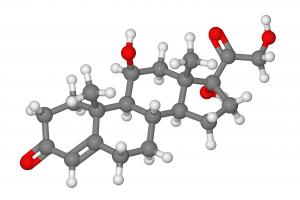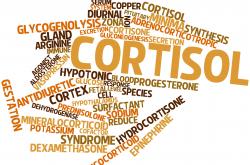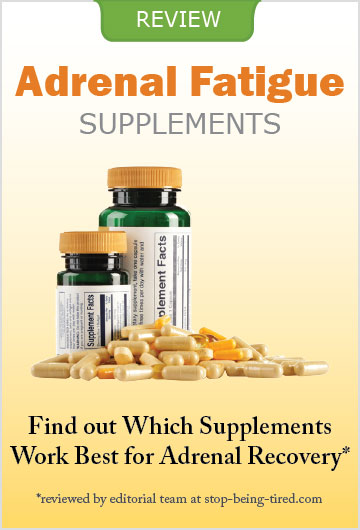Depleted Adrenals and the Dangers of Low Cortisol
While elevated cortisol levels remain the focus of most people’s conversation, low cortisol is an equally critical concern. To avoid it, you should know its causes, effects, and symptoms – and then learn how to effectively treat it.

As hormones go, cortisol may be the most commonly misunderstood chemical in the body. In fact, many associate this naturally-produced steroid with almost every ill under the sun. That perception has led many fatigue sufferers to think of cortisol as something akin to an enemy within their own bodies, working steadily to sabotage their health. The reality is that cortisol is an essential component of good health – when its levels are within normal ranges, that is.
By now, most sufferers of adrenal fatigue are aware of the dangers that can accompany chronically high levels of cortisol. It can damage the sex drive, elevate blood pressure, and even lead to depression and weight gain – and those are just a few of the more common problems!
On the other hand, a whole host of things can go wrong when your cortisol levels are too low. Unfortunately, today’s stressful lifestyles are leaving more and more people with depleted adrenals – and that can result in dangerously low levels of this critical hormone.
How Does Cortisol Get So Low Anyway?
Medical practitioners are often known to suggest that low cortisol levels are only a problem when they are associated with an autoimmune disorder such as Addison’s disease. The fact is, however, that one of the most common causes for low cortisol is the depletion of the adrenals that occurs after periods of chronically high levels of stress and elevated cortisol.
Stress appears, and cortisol levels rise. That stress response requires recovery time to bring the body back to a normal state. When that recovery time is interrupted continually by new or continuing stress, then the body continues to demand more cortisol from the adrenals. After a time, the adrenals lose their ability to respond and cortisol levels plummet.
Dangers Associated With Low Cortisol
Low cortisol levels are a serious matter. While higher than normal cortisol levels receive much of the attention in conversations about stress, it is low levels that lead to adrenal fatigue. While Addison’s disease is the most common ailment associated with low levels of this hormone, it is an extreme example. In most cases, this hormonal imbalance has effects that can often go unnoticed for many months and even years.
Fatigue is, naturally, the one condition that patients routinely report. Since cortisol levels rise while we sleep, they are commonly at their highest point within the first few hours after waking. That is a necessary part of the circadian rhythm, as it helps to provide you with the energy you need to start your day. When those cortisol levels are low, your entire day starts out in an energy-deprived state which can lead to intense cravings for fast-burning food throughout the day. Naturally, this can contribute to sharp increases and decreases in your cortisol level, which is why adrenal fatigue sufferers experience so many energy highs and lows each day.
Common Symptoms of Low Cortisol
There are many symptoms that can indicate the presence of low cortisol levels in the body. Chief symptom is, of course, fatigue. This is commonly the first symptom that patients notice as their body no longer has the cortisol it needs to provide all the fuel the body’s cells require to power their day. And, of course, fatigue only gets worse as time goes by, since the exhaustion itself creates a greater demand for cortisol as the body struggles to deal with the stress of energy deprivation. It’s a cycle of adrenal abuse that can only be ended through a commitment to adrenal recovery.
Other symptoms of low cortisol can include any of the following:
- low blood pressure
- an inability to sleep
- mood swings, heightened anxiety, and depression
- collapse of the libido
- allergic sensitivities
Steps You Can Take to Deal with Low Cortisol
When low cortisol is identified as a problem, you should take immediate steps to remedy the situation. While you should avoid hormone replacement treatments, there are some natural options that will provide your adrenals with the support they need to once again produce the cortisol your body needs.
Focus on Rest
Sleep is critical for fatigued individuals. You should set a target goal of seven or eight hours of sleep each night, to ensure that your body has maximum rest time. Obviously, this may not always be possible, since schedules can vary and unforeseen events and emergencies can arise. Even so, you should always strive to hit that goal whenever possible – even if it means taking a short nap in the afternoon every now and then.
Diet Matters
For diet, nothing is more important than breakfast. After all, if your body is already struggling to provide the cortisol your body needs for energy conversion, the last thing you should do is deprive it of the nutrients it needs to ensure the efficient use of what little cortisol you do have! Eat a balanced breakfast that includes plenty of protein, and fewer carbohydrates.
Instead of eating two or three large meals, divide that up into five or even six smaller meals over the course of the day. That will help to keep your body stocked with nutrients and avoid those times when the energy level sinks so low that you crash. Also, try to avoid caffeinated beverages, sugary sweets, and other stimulants that will throw off your natural energy balance.
The low cortisol levels that are often caused by depleted adrenals can be a source of serious health concerns if not properly addressed. With the right commitment and approach, however, you can make the lifestyle changes needed to ensure that your adrenals have the support they need to recover and once again produce the hormones you need for sound health.
You might also be interested in:
- Why Cortisol Is Good for You. http://scdlifestyle.com/2013/10/why-cortisol-is-good-for-you/
- The Ups And Downs Of Cortisol: What You Need To Know. http://breakingmuscle.com/health-medicine/the-ups-and-downs-of-cortisol-what-you-need-to-know
- Cortisol. http://www.yourhormones.info/Hormones/Cortisol.aspx
- Cortisol, the energy hormone. http://drsaulmarcus.com/fatigue/adrenalfatiguecortisolcfs.html
- Bio-identical Hormones: What is Cortisol? http://www.dramybrenner.com/bhrt_cortisol.htm














.jpg)




Leave a comment